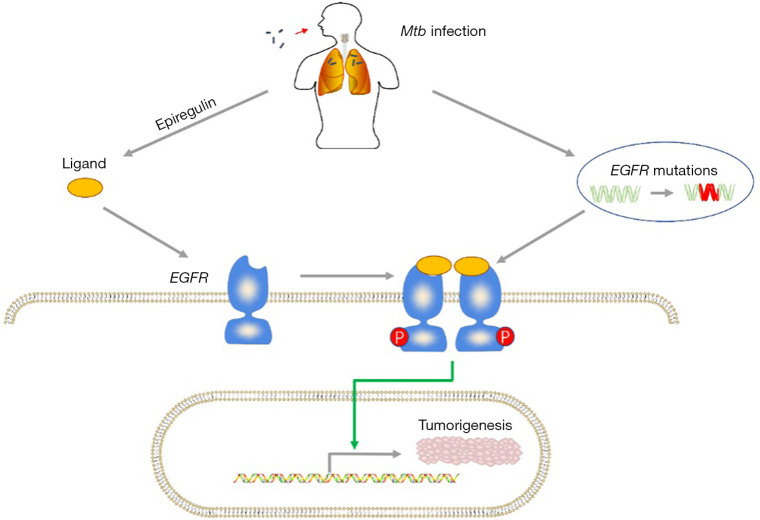Figure 3.
Epidermal growth factor receptor (EGFR) mutations induced by tuberculosis (TB) in lung cancer (LC): EGFR autophosphorylates at their tyrosine residues after binding to their ligands. The activated EGFR activates many downstream signaling pathways, such as cell proliferation, apoptosis, and survival. EGFR mutations can generate continuously activated EGFR, which leads to tumorigenesis. Patients with pre-existing tuberculosis (TB) have an increased frequency of EGFR mutations, and Mycobacterium tuberculosis (MTB)-infected macrophages play a role in the production of epiregulin, a most potent ligand for EGFR, thus promote the occurrence of LC.

